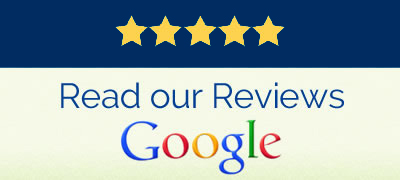
The Ultimate Guide to Understanding Landlord Insurance vs. Homeowners Insurance
Shield Insurance Blog | Landlord Insurance | Contact Us | Start A Quote
Are you a homeowner or a landlord? Do you know the difference between landlord insurance and homeowners insurance? If not, you’ve come to the right place! In this comprehensive guide, we will break down the key differences between these two types of insurance policies, helping you make an informed decision about which one is right for you. Whether you’re a homeowner looking to rent out your property or a landlord with multiple rental units, understanding the nuances of these insurance policies is crucial to protect your investment. Let’s dive in!
Homeowners Insurance
Homeowners insurance is a policy designed to protect individuals who own and live in their homes. It provides coverage for the structure of the house, personal belongings, and liability in case of accidents or injuries on the property. This type of insurance is essential for homeowners as it safeguards their investment and provides financial security in case of unforeseen events such as fire, theft, or natural disasters.
Landlord Insurance
Landlord insurance, on the other hand, is specifically tailored for property owners who rent out their homes or apartments. This insurance policy offers coverage for the structure of the building, liability protection, and loss of rental income. Unlike homeowners insurance, landlord insurance also covers damages caused by tenants, such as vandalism or theft. It is crucial for landlords to have this type of insurance to protect their property and rental income.
Key Differences
Now that we understand the basics of homeowners and landlord insurance, let’s explore the key differences between the two:
- Coverage: Homeowners insurance primarily focuses on protecting the homeowner’s personal property and liability, while landlord insurance extends coverage to the structure of the building and potential rental income loss.
- Liability: Homeowner insurance covers accidents or injuries that occur on the homeowner’s property, while landlord insurance includes liability protection for both the property owner and the tenants.
- Tenant-related Damages: Landlord insurance covers damages caused by tenants, such as vandalism or theft, which are not typically covered by homeowners insurance.
- Loss of Rental Income: Landlord insurance provides coverage for loss of rental income due to property damage, making it an essential safeguard for landlords who rely on rental income.
- Choosing the Right Insurance
When deciding between landlord insurance and homeowners insurance, there are a few factors to consider:
- Property Usage: If you plan to rent out your property, landlord insurance is a must. However, if you live in your home and do not rent it out, homeowners insurance is sufficient.
- Rental Income: If you rely on rental income to cover mortgage payments or other expenses, landlord insurance is crucial to protect your financial stability.
- Additional Coverage: If you have valuable personal belongings or unique risks associated with your property, consider homeowners insurance with additional coverage options.
Understanding the differences between landlord insurance and homeowners insurance is vital for homeowners and landlords alike. While homeowners insurance protects your personal property and liability, landlord insurance provides comprehensive coverage for rental properties, including structure, liability, and loss of rental income. By choosing the right insurance policy, you can safeguard your investment and ensure financial security. Remember to assess your property usage, rental income, and additional coverage needs when making this decision. Now that you’re armed with this knowledge, you can confidently protect your property and make informed choices about insurance coverage.
Shield Insurance Agency represents over 40 insurance companies. Contact Shield Insurance Agency at (616) 896-4600 for a free quote today or start the quoting process by visiting this LINK and an agent will be in touch soon.
More Blogs by Shield Insurance Agency
- What value comes with my renters insurance plan in Michigan?
- Navigating Michigan Auto Insurance: Understanding Collision Coverage
- Russ Cook Runs 385 Marathons In 352 Days, Becomes First Man To Run Entire Length Of Africa
- Life Insurance Demystified: Whole Life vs. Term Life – Which is Right for You?
- Restaurant’s Quest For Mystery ‘ French Fry Girl ‘ Ends In Heartwarming Discovery




























































